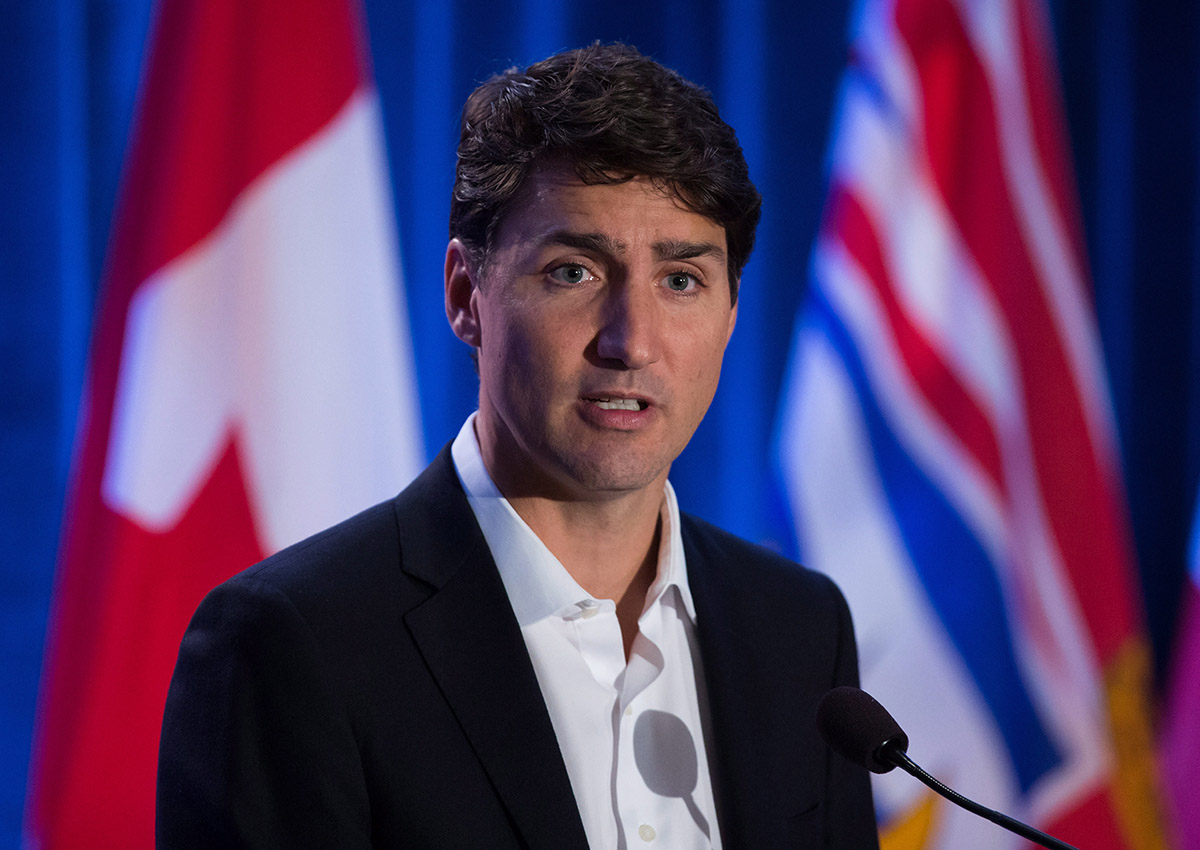“I want to be clear,” Prime Minister Justin Trudeau said at the Liberal party’s recent caucus gathering in Kelowna. “People who make $50,000 a year should not pay higher taxes than people who make $250,000 a year.”

Trudeau was defending the government’s proposed small business tax changes, which would eliminate such practices as business owners paying themselves dividends, sprinkling income among family members or holding certain investments — such as real estate — through a corporation.
These proposed changes have touched off a firestorm of protest from small business owners — and Liberal MPs are feeling the heat. So the PM and Finance Minister Bill Morneau are attempting to douse the flames by talking up “tax fairness” — something they figure most Canadians would agree upon. After all, taxation is supposed to be progressive — the more you make, the more you pay, right?
But that’s where they’re actually dead wrong.
WATCH: Finance Minister Bill Morneau on decision to make changes to the tax system

What matters isn’t how much you make. What matters is how much you take home — after expenses are factored in. For some professionals, these expenses are considerable. Doctors pay overhead, staff salaries (like Mr. Trudeau, they need someone to answer the phone) and other operating expenses. Female doctors even finance their own maternity leaves — a rich irony, given how this PM prides himself on creating policy through a lens of gender equity.

Get breaking National news
“You move the goal posts in the middle of the game,” Dr. Anita Sana recently told Trudeau, “and expect me somehow to be able to plan for my retirement, plan for maternity leave — which I will not be able to afford at this time — and I’m having to choose between having a family and being able to actually practise as a physician.”
Take-home pay also has to include the benefits received by workers — which, particularly if they are unionized, can be considerable, even for people in the middle of the income scale. Independent professionals don’t get any of these — a fact which makes Trudeau’s numbers game even more disingenuous.
WATCH: Justin Trudeau defends proposed tax reform changes

For argument’s sake, let’s compare two taxpayers. The first is an unionized Ontario teacher making $90,000 a year. She benefits from two months’ annual paid vacation, 11 fully paid sick days and one of the most generous pension funds in the country. She gets other perks as well: personal development training, free parking and the biggest perk of all — job security. She can retire with a full pension when her age and qualifying years add up to 85, which means that a teacher who has taught for 32 years since age 21 can hang up her Smartboard at 53.
The second taxpayer is a freelance communications professional making $90,000 a year. She benefits from … nothing. She has no paid sick days, no paid vacation, no pension plan. She has to pay for every paper clip, every computer upgrade, every tank of gas and every parking spot she needs to do her job. This takes a considerable chunk out of her take-home pay. She has no job security; she needs to hustle for work, fighting for clients and gigs in the real and virtual world, maintaining a web presence, networking constantly. She is staring 50 in the eye and doesn’t see herself retiring anytime soon.
But she’s not griping. Instead, she incorporates, which allows her to pay less tax. She deducts the items she needs to conduct her business. She pays herself dividends, which are taxed at a lower rate. She leaves some money in the corporation, which also is taxed at a lower rate. Those funds are directed to savings she puts away so that, like the teacher, she has security for a rainy day, or for when she retires. And whenever that day comes, and the money is taken out, it will be taxed, as income — with the government again getting its cut.
This taxpayer is not hypothetical. She is not part of the platinum-card 1 per cent. She is the voter Justin Trudeau claims to care about: middle class, raising a family, contributing to her community. Trudeau’s tax changes will not only make her worse off than her teacher counterpart (which is unfair), they also will hurt all the people and businesses she spends money on, from the computer repair guy to the lunch place she takes clients, because she will have to cut spending to make ends meet under the new rules.
Which is exactly what the government will not have to do. Make no mistake: The real motivation here is feeding the spending Leviathan that is the federal government. After pledging “modest” deficits of $10 billion, Trudeau has racked up $30 billion in deficits as far as the eye can see. So rather than buckle his belt, he wants Canadians to buckle theirs, under the guise of fairness.
But only some Canadians. The millions of taxpayers affected by the small business rule changes are low-hanging fruit. They’re easy to find and the Canada Revenue Agency will have no problem shaking them down.
The real big earners — the 1 per cent, people with deep pockets and clever lawyers, people who can move money to the sunny jurisdictions now flattened by Hurricane Irma — will carry on unscathed. If that’s this government’s definition of fairness, it needs a better dictionary.
Tasha Kheiriddin can be heard between noon and 2 p.m. ET on Toronto Talk Radio AM640. She’s also a columnist with Global News and iPolitics.ca, where this piece first appeared.






Comments